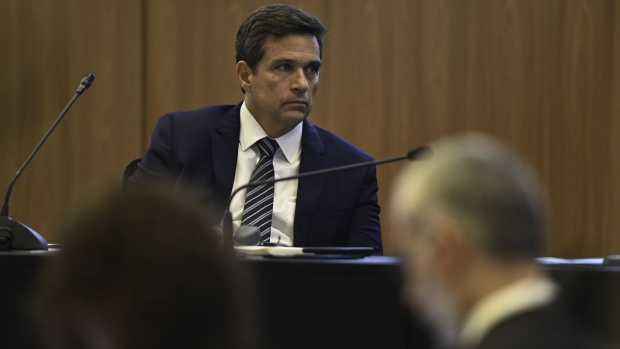Apr 17, 2024
Brazil’s Central Bank Warns Investors of Growing Uncertainties
, Bloomberg News

(Bloomberg) -- Brazil’s central bank head Roberto Campos Neto told investors that uncertainties have increased since the last monetary policy meeting as economists weigh odds that policymakers will slow interest rate cuts.
Financial markets have become more worried about Brazil’s fiscal policy, and those concerns are capable of affecting risk premium, thus making the central bank’s job harder, Campos Neto said at an event in Washington on Wednesday. Much of the uncertainty comes from the global economy, he said, laying out several possible scenarios that could impact local monetary policy.
“We could have a system in which the uncertainty continues to be very high, but doesn’t change significantly, which might mean a reduction in pace,” he said. “We could have a scenario in which the uncertainty starts to affect more strongly important variables, and then we need to go and talk about changing the balance of risks.”
Brazil’s interest rate futures rose during Campos Neto’s remarks as investors mulled whether policymakers’ concerns mean they will have less room to lower borrowing costs in Latin America’s largest economy. Since August, central bankers have cut the Selic by three percentage points to 10.75% though a series of half-point drops. They have signaled least one more is on tap in May.
Read more: Brazil Weakens Key 2025 Budget Target as Spending Rises
This week, Finance Minister Fernando Haddad said Brazil will target a less ambitious 2025 fiscal outcome than previously indicated, likely disappointing investors who are eager for strong signs that the government plans to control spending and limit deficits.
Meanwhile, on Tuesday, Federal Reserve Chair Jerome Powell signaled the Fed will wait longer than previously anticipated to cut its own borrowing costs following a series of surprisingly high inflation readings.
Repricing in emerging markets has been intense in recent days, Campos Neto said.
Brazil’s central bank will do whatever is necessary to bring inflation to target, Campos Neto said, adding that consumer price expectations are important. He added that the monetary authority does not react to specific data points, but rather tries to understand underlying trends.
©2024 Bloomberg L.P.







